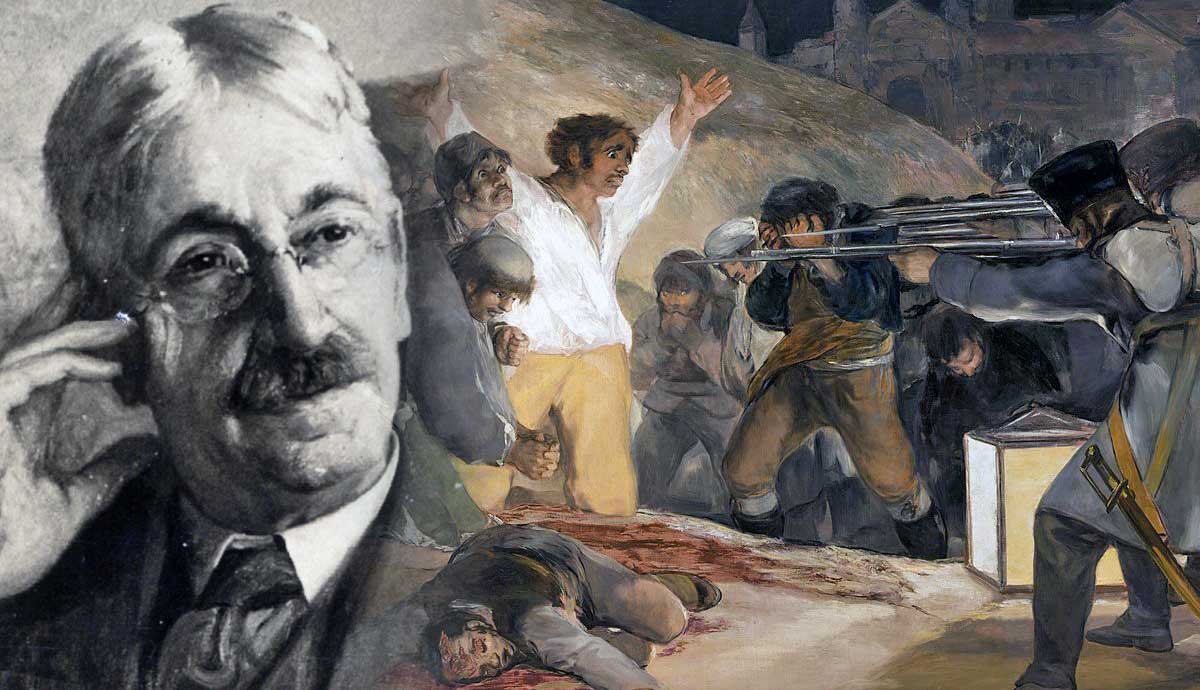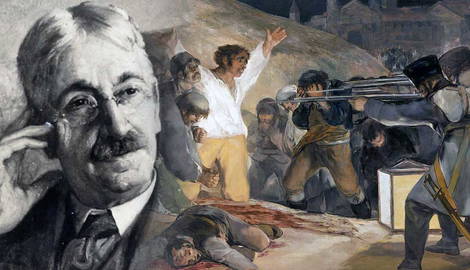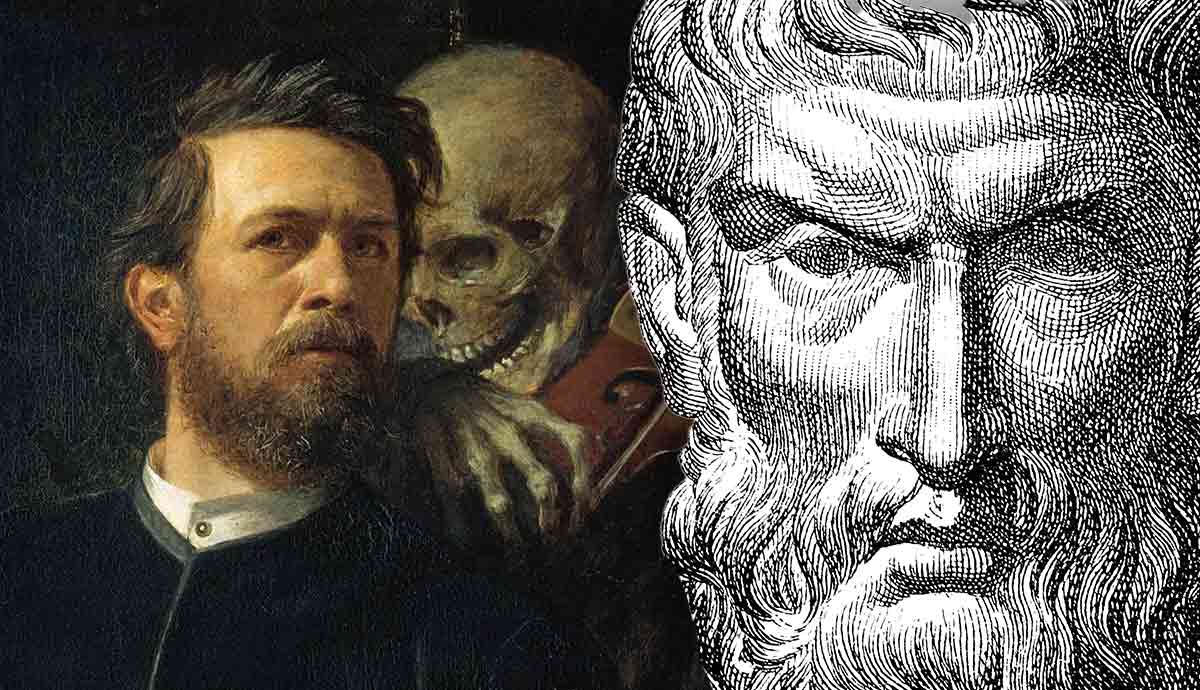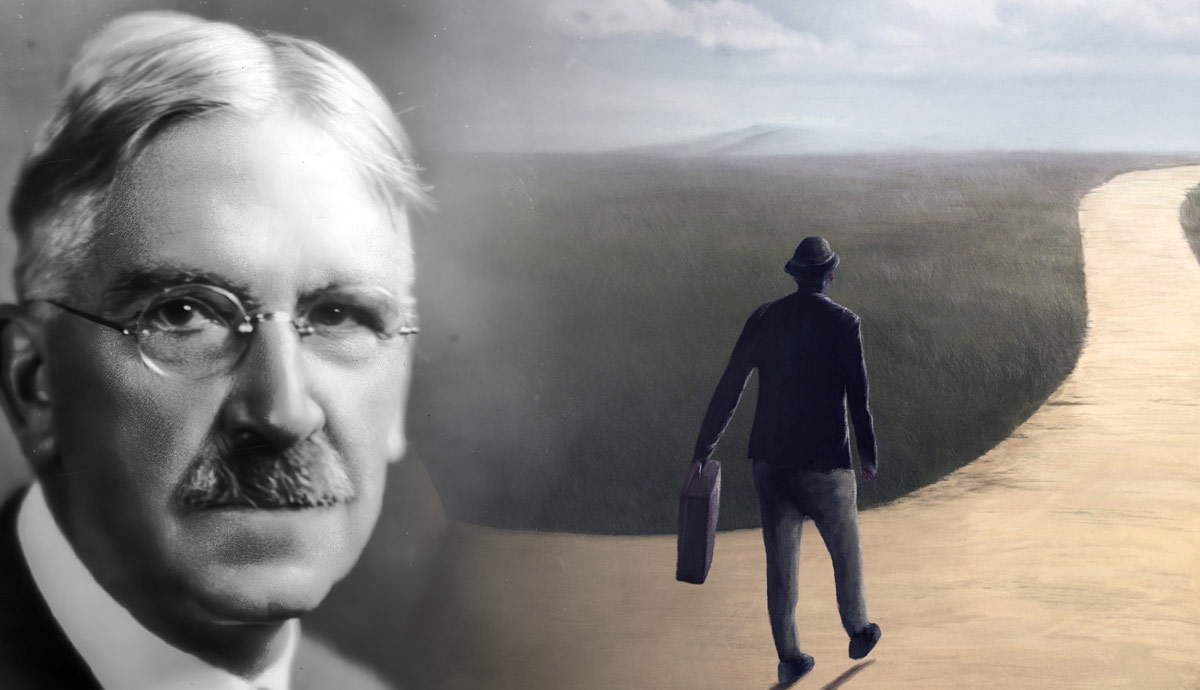
In the philosophy of John Dewey, a significant American thinker and educator, liberalism and pragmatism are deeply intertwined. Rather than merely involving the absence of external constraints, Dewey believed that true freedom consists in being able to participate actively in democracy and society. Moreover, he insisted that this could only be achieved through an approach to problem-solving known as pragmatism, which emphasized practical experience and experimentation.
So what exactly were Dewey’s key philosophical ideas on liberalism, and how did they connect with his pragmatic approach?
Who Is John Dewey?

John Dewey—a name that needs no introduction—was the last of the great pragmatists, an influential psychologist and educational reformer who lived from 1859 to 1952.
Widely recognized as one of America’s foremost philosophers, Dewey played a central role in shaping US intellectual life throughout his long career. Born in Burlington, Vermont, he taught at several prestigious institutions, including the University of Chicago and Columbia University.
Dewey’s philosophy revolved around pragmatism, which holds that practical consequences rather than abstract theories should define truth.
Rejecting any notion that knowledge is fixed or objective, he argued it evolves through experience and interaction with the environment. This perspective led him to stress the importance of learning by doing, acquiring skills not for their own sake but because they were necessary or useful.
But this was only part of his contribution: Dewey also made significant advances in psychology—functional psychology in particular—emphasizing how thought and action are inseparable.
Humans are not passive observers but active agents who shape their worlds as they go along, experimenting to find what works and solving problems as they arise.
Finally, Dewey made crucial interventions into educational theory and practice, advocating student-centered learning where students actively participated rather than passively received information, something called “experiential learning” (i.e., using real-life contexts to learn).
Liberalism in Dewey’s Philosophy

Liberalism, within the framework of John Dewey’s philosophy, can be described as a system of beliefs that underscores individual freedom and rights in addition to democratic governance.
In many ways, Dewey contended that liberalism should extend outside political or economic spheres and permeate all aspects of human life, including social relationships, education, and culture.
Dewey’s emphasis on individual freedom and rights stems from his view that every person has intrinsic worth; they, too, should have the opportunity to flourish and develop their full potential.
He advocated for a society that creates conditions that enable individuals to pursue their goals without restrictions. True liberty for Dewey lies not in simply being unrestricted—but in having the ability to actively shape one’s own life.
Dewey had much to say about authoritarianism, too—dogmatic ideologies that suppress individual liberty were subject to his fierce critiques.
Rigid systems inhibiting intellectual growth or progress were argued against; truly democratic societies should also encourage open-mindedness, diverse perspectives, and critical thinking.
Dewey saw dogmatism as deeply threatening because it forestalls inquiry intellectually—creativity gets stifled.
To illustrate further, traditional educational practices enjoyed little approval from Dewey if they prioritized rote memorization over active learning experiences—recall his 1916 book Democracy And Education.
His argument was that such methods limit students’ capacity for thinking autonomously or critically. He called instead for a learner-centered approach in which students are actively involved with their environment via hands-on experiences and problem-solving activities.
Overall, then (within John Dewey’s philosophy), liberalism is obvious through its focus on individual freedom plus rights while challenging authoritarianism plus dogmatic ideologies hindering personal development/restricting how much humans might achieve.
Dewey’s Critique of Traditional Liberalism

Despite embracing liberalism to some extent, John Dewey critiqued traditional liberal principles. One aspect that troubled him about classical liberalism was its reliance on abstract and rigid principles that could not always cope with the complexities of real-life situations.
Dewey argued that applying fixed ideas, such as those found in classical liberal theories, could hinder progress and limit the potential for positive change.
Society was constantly evolving, he believed; political and social institutions needed to be adaptable and responsive. A more flexible approach—allowing room for experimentation and adaptation—would enable new challenges to be met effectively.
Moreover, what Dewey saw as a narrow understanding of freedom operated in traditional liberalism: something purely negative.
Classical liberals emphasized the absence of external constraints on individuals’ choices, but genuine freedom should involve active participation in shaping one’s own destiny within a social context, thought Dewey.
Individual freedom also needed collective participation and collaboration if it were truly to operate, so his notion went beyond negative liberties or individual rights.
His participatory vision seeks democratic engagement by all citizens (the more local, the better), community involvement across life’s spectrum (including schools)—and shared responsibility for creating an inclusive society.
In this view, recognizing interdependence is important, whether understood through sustainability arguments or because everything is connected anyway; cultivating communal responsibility is also key. Freedom is not just about autonomy alone but about individuals working together actively towards common goals.
Pragmatism as a Complementary Philosophy

The pragmatic philosophy of John Dewey is a handy complement to classical liberalism, adding practicality and dynamism to its account of human experience. Pragmatism is a philosophical approach that values the practical consequences of ideas and beliefs.
Pragmatism applies to liberal principles by connecting them with real-world applications and problem-solving, arguing that this makes them more effective.
While classical liberalism can often appear distant from everyday life (by focusing on abstract principles or individual rights), pragmatism is about the practical implications of these things—how they make a difference in practice rather than just in theory.
Pragmatism “completes” liberalism because it gives us the tools to put it into practice—not only does social progress need liberal values such as equality, freedom, and democracy. But if we can implement those values effectively, then we need some way of making them workable: experimentation, adaptability, and open-mindedness.
Pragmatic thinking complements liberalism because without pragmatism (the idea that there are many different ways to address any given issue), you risk becoming dogmatic—assuming that one-size-fits-all solutions will always work in every context.
A key insight running through all pragmatic thinking is the importance of appreciating context when applying abstract concepts: something may have worked once upon a time somewhere else, but that does not mean it’s still appropriate or best here now.
Dewey gave examples of where he thought there was scope for people to be more flexible about applying some core principle they believed in by better accounting for context variance.
In education, for example, he argued that children would learn more effectively if lessons were structured so that they had hands-on experiences within their environment. This enabled them to develop critical thinking skills needed for active citizenship within a democratic society.
Democracy as the Fulcrum of Liberalism and Pragmatism

Democracy, liberalism, and pragmatism were all interrelated concepts for John Dewey. To him, democracy was more than a mere political system; it was a way of life. His conception of democracy extended beyond the realm of politics to encompass active and inclusive participation in all facets of society.
Dewey believed a deep connection existed between individual freedom and the democratic process. He contended that genuine freedom could only occur within an environment that allows citizens to participate effectively in decisions affecting their own lives.
In Dewey’s view, democracy allows people to express their diverse perspectives and shape collective outcomes.
Pragmatism also had an important role to play in enhancing liberal democracy’s operation for Dewey. Pragmatism prioritizes practical experience and experimentation as ways of solving problems.
According to Dewey, this approach enhances democracy by promoting open-minded engagement with social issues and informed decision-making based on evidence and consequences.
In a liberal democratic society inspired by pragmatism, a premium is placed on adjustment rather than sticking rigidly to ideological positions—ideas can be continuously reassessed according to real-time feedback.
A pragmatic orientation encourages learning from mistakes or changing direction when necessary. Progress depends on regularly reviewing how things work out through reflection-on-action experimentation.
Moreover, valuing experiential knowledge acquired through lived situations heightens citizen involvement. Pragmatic thinking recognizes that individuals’ experiences help shape those perspectives, so relevant insights into some social challenges come from them.
In sum, democracy is the pivot linking liberalism with pragmatism because actively participating in democratic processes ideally affects principle-based liberal ideals.
They provide openings for effective governance enriched by information derived from employing pragmatic problem-solving methods.
Societal progress comes about because everyone has fundamental freedoms, enabling them to fully do what humans practically need to achieve better lives together.
Harmony Between Individual Rights and Social Responsibilities

John Dewey’s objective was to balance individual rights and social obligations, challenging the view that liberalism is purely about self-interest. He perceived the defense of civil liberties and acknowledgment of collective duties as two sides of the same coin.
Dewey dismissed an atomistic notion of liberal freedom that paid little or no attention to our interconnectedness with others. He believed that genuine liberty does not mean breaking free from social responsibilities but actively shaping a fairer society.
To negotiate this tricky terrain between rights and responsibilities, Dewey placed great value on pragmatism—making decisions on their merits in specific circumstances—which also meant taking account of our potential impact on others while respecting personal autonomy.
So when it comes to free speech, what Dewey called “responsible expression” takes account of diverse views and harm that might be done through hate speech or disinformation.
Enjoying our right to speak freely should go hand in hand with an awareness of the implications for the well-being of individuals affected by the words we use and for wider societal functioning.
Dewey’s pragmatism allows us to walk a tightrope: weighing up respect for individual liberties against concern for collective welfare. Instead, it calls for practical problem-solving via ongoing dialogue and negotiation—even if compromise sometimes feels uncomfortable.
By jettisoning extreme forms of individualism, embracing approaches rooted in pragmatism—changing what works depending on context—and stressing responsible exercise rather than avoiding altogether when exercising one’s own rights.
So, What Is Dewey’s Philosophy About?

Several key ideas and concepts drive John Dewey’s philosophy. Central to his thinking is integrating democracy, liberalism, and pragmatism. Dewey argues that democracy isn’t just a political system: it’s a way of life that requires active participation and inclusive decision-making in all aspects of society.
Dewey calls for a balance between individual freedoms and social responsibilities—an antidote to an overly individualistic interpretation of liberalism. True freedom demands more than simply pursuing our own self-interest, he believes; it lies in actively shaping our lives while considering the needs and well-being of others.
Pragmatism plays a vital role in Dewey’s philosophy by emphasizing practical experience and experimentation as ways to solve problems. By encouraging open-mindedness, collective learning from experience, and flexible adaptation when tackling complex social difficulties, pragmatism enriches liberal democracy.
In essence, John Dewey’s philosophy combines democratic principles with liberal values plus pragmatic approaches.
It means taking part rather than standing on the sidelines, balancing personal freedoms with duties towards society, and using practical experience, not dogma, to navigate the complexities of democratic governance.










